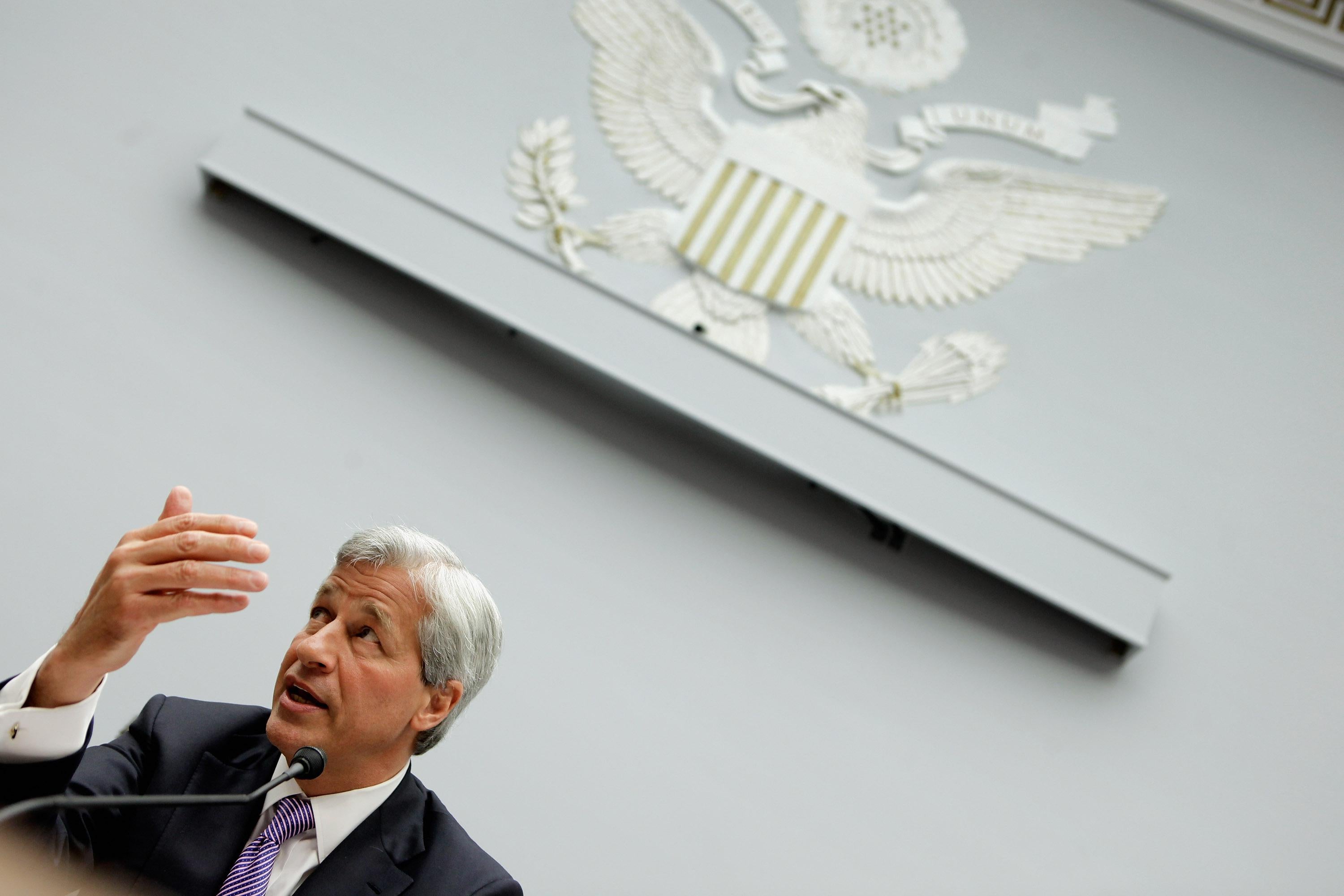Peter Eavis at Dealbook writes that JPMorgan is able to shrug off the $20 billion in legal penalties it’s agreed to pay because the bank is easily large and profitable enough to cover the bill. That’s surely part of the story. But another big part of the story is that the $20 billion in penalties is a substantially inflated figure, something prosecutors like to tout to exaggerate the extent of their accomplishments.
Consider the $9 billion settlement with the Justice Department. Almost half of that consists of “relief” to homeowners rather than actual fines paid to the government. That’s fine—homeowners need the money more than the government does. But as David Dayen has written, JPMorgan can get away with labeling a lot of stuff they would or should have to do anyway as relief that counts for the purposes of the settlement. When the bank writes down the value of an unrecoverable second-lien on an underwater mortgage, for example, that’s a loss for the bank. But when it goes and applies the cost of that write-down against the legal settlement tab, that’s not an additional loss to the bank—it’s just double counting. At best these aspects of the legal settlement are a way of prodding Morgan to acknowledge losses rather than dragging its feet. There is real merit to that kind of prodding, but it ought to be the ordinary work of bank regulators. It’s not a legal penalty.
